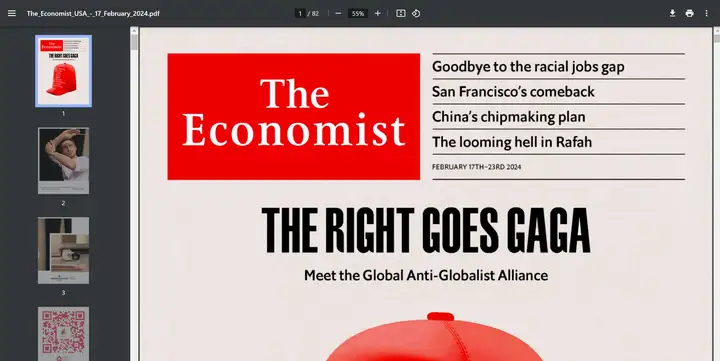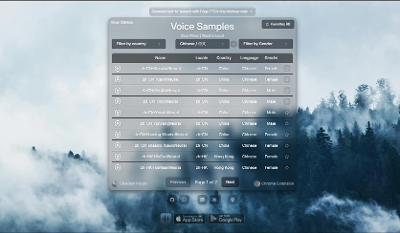
Economist Reading and Analysis -3rd
本文最后更新于 2025-11-10,墨迹未干时,知识正鲜活。随着时间推移,文章部分内容可能需要重新着墨,请您谅解。Contact
What is Elon Musk getting up to with America’s payment system?
-Nobody is sure, many are worried
Audio
Original Text

ON THE MORNING of January 28th April Mullins-Datko, the director of ADVOCAP, a social-services provider in Fond Du Lac, a city of 40,000 people in Wisconsin, put in her usual request to draw down $250,000 to pay staff salaries and other expenses connected with Head Start, a federal programme that provides child care, education and food to families on low incomes. Every other time ADVOCAP has done this the money has arrived within 48 hours.
This time it did not. As of February 9th ADVOCAP has received just $44,000 of the $250,000 they were expecting. To pay its workers, it has had to use bank credit. If the money does not materialise soon, it will have to begin laying off staff and shutting down its Head Start programme. The result will be 202 children without services and 80 staff members without jobs.
ADVOCAP appears to be a victim of Donald Trump’s seizure of the federal government’s payment systems. Its money should not be missing, according to the White House. A memo that froze much government funding, issued late on January 27th, was quickly rescinded after an outcry and a court ruling. Yet ADVOCAP’s money has not turned up and nobody seems able to explain why.
Ms Mullins-Datko says she has been calling anyone she can, but “they’re not responding. I’ve heard nothing from them.” She has received only one insight: “I called the Office of Head Start central office in DC and they said, ‘Oh, we’re sorry. This isn’t an Office of Head Start problem. This is a Treasury Department issue.’” Guidance sent to NGOs by the National Head Start Association, which represents service providers, confirms they too have been told that the problem is with the Treasury.
That clue connects ADVOCAP’s glitch to a bigger question that has roiled Washington over the past week: Exactly what has Elon Musk’s “Department of Government Efficiency”, or DOGE, been doing inside the Bureau of the Fiscal Service, a once-obscure but sensitive area of the Treasury? This is the part of the government responsible for paying out roughly 80% of the nearly $7trn that the government spends each year.
The drama broke into the open on the morning of January 31st, when David Lebryk, the bureau’s longstanding boss and a career civil servant, suddenly resigned. Until then, the bureau was among the most anonymous of federal offices. According to Don Hammond, a former official there, Mr Lebryk often told staff members that if the bureau is in the news, the country is in serious trouble. Ever since he stepped aside, it has been in the news an awful lot.
A few days after Mr Trump took office, Tom Krause, a software executive now working with DOGE, ordered Treasury officials to halt payments made by the US Agency for International Development (USAID), according to emails obtained by the New York Times. USAID has subsequently been all but shut down. In the emails, Mr Lebryk argued that refusing payments was not the Treasury’s legal or technical role—only agencies (like USAID) can do that. He was put on leave and subsequently resigned. His defenestration has sparked something close to panic among seasoned government watchers and career civil servants about what DOGE might be doing.
What is clear is that allies of Mr Musk, including Mr Krause, and also a 25-year-old former Twitter engineer, Marko Elez, have been given access to the bureau’s payment system, under the orders of Scott Bessent, Mr Trump’s new Treasury secretary. They may have asserted the authority to write new code into it, although politically-appointed officials deny that. Nobody disputes that they have acquired the ability to read details of some of the most sensitive data the government holds, including the bank details, social-security numbers and tax identifications of in essence every individual and organisation ever paid money by the federal government. In the past only non-partisan career civil servants have had access to this information. Mr Krause not only is partisan. He retains his previous job, as CEO of Cloud Software Group, a tech-services company.
What could they have done? Contradicting the Treasury’s own spokesperson, Mr Musk has repeatedly suggested on X, his social-media platform, that his team are shutting down payments to government contractors directly. He claims to be fighting corruption. Before DOGE came in, Treasury officers “literally never denied a payment in their entire career”, he scoffed. If they are blocking payments, it could violate two court orders. Yet Treasury insiders are concerned that DOGE officials may have found ways to implant code that could delay payments to recipients while hiding that from career civil servants.
Another possibility is that DOGE could be asserting authority over a system, Do Not Pay (DNP), designed to prevent bad payments by automatically freezing out accounts known to belong to dead people, tax delinquents and recipients out of compliance with federal rules. The firing of 17 inspectors-general, one of Mr Trump’s first acts in office, might facilitate this, since they have oversight of the DNP system.
Even if Mr Musk’s claims that he is blocking payments are nonsense, the system is vulnerable to accidents caused by tinkering. Programmes like these have been built up over decades, literally on top of 1960s “COBOL” mainframes, says Mikey Dickerson, a former head of the United States Digital Service. “No living person understands more than a small piece of it.” Small changes made without extensive testing can produce catastrophic errors.
The Treasury says Mr Musk’s team has been limited to “read-only” access. Yet Mr Musk says he is issuing instructions to others. These could impinge on several privacy laws. And the payment system could be used against political opponents in a devastating fashion, by cutting transfers to unfavoured organisations. There is only one real precedent for political appointees going into these sorts of federal systems, some older officials note. That was when Richard Nixon’s team used Internal Revenue Service records to work out how to target people on the president’s “enemies list”.
On February 8th a federal judge in New York, citing a risk of “irreparable harm”, stopped DOGE temporarily from gaining access to the payment system, and ordered that any data retrieved be destroyed. But Treasury workers fear that this order will simply be ignored. Mr Musk’s response was to call the judge “a corrupt judge protecting corruption” and to call for him to be impeached. J.D. Vance, the vice-president, retweeted a claim that the order amounted to “judicial interference”.
For ADVOCAP, the consequences are already serious. Ms Mullins-Datko says her employees are worried that they may not get their next pay cheques, and some have been looking for other jobs. The money ADVOCAP is owed, she stresses, is for work already done, and she has a five-year contract to continue providing services. The terms of this contract include extensive auditing to prevent any fraud or misuse of funds. “The government is in breach of contract,” she says. ■
Analysis
1. Impact on ADVOCAP and Service Delivery
- Financial Shortfall: ADVOCAP expected a disbursement of $250,000 from the Head Start program but has only received $44,000 as of February 9th. This significant shortfall forces the organization to rely on bank credit to meet immediate obligations.
- Consequences: Failure to secure the remaining funds threatens the livelihood of approximately 80 staff members and disrupts services for 202 children reliant on the Head Start program. This not only affects the organization but also the community it serves, highlighting the broader social implications of federal funding disruptions.
2. Potential Link to Treasury Department Disruptions
- DOGE's Role: The passage suggests that DOGE, allegedly led by Elon Musk and including figures like Tom Krause and Marko Elez, has interfered with the Bureau of the Fiscal Service within the Treasury Department. This bureau is critical as it manages about 80% of the U.S. government's annual expenditures.
- Interference Tactics: According to the passage, DOGE may have gained write access to the payment systems, potentially implementing code that delays or blocks payments. Such actions could undermine the efficiency and reliability of federal funding mechanisms.
3. Administrative and Political Turmoil
- Resignation of David Lebryk: The unexpected resignation of the bureau's head, a career civil servant, signals internal conflict and possible resistance to DOGE's interventions. Lebryk's stance that payment refusals are outside the Treasury's purview further exacerbates the situation.
- Judicial Intervention: A federal judge's temporary halt of DOGE's access to the payment system underscores the severity of the issue. However, DOGE's leader dismissing the judge's ruling as corrupt indicates ongoing legal and political battles that could prolong uncertainty.
4. Security and Privacy Concerns
- Data Access Risks: The passage raises alarms about unauthorized access to sensitive data, including bank details and social security numbers. Such breaches pose significant privacy risks and could be exploited for political or malicious purposes.
- Historical Precedents: Comparing DOGE's actions to Nixon-era misuse of IRS records suggests potential for political persecution or targeting of unfavored organizations, highlighting the dangers of politicizing federal systems.
5. System Vulnerabilities and Technical Risks
- Legacy Systems: The mention of COBOL mainframes indicates that the Treasury's payment systems may be outdated and not fully understood by current personnel. This technological lag can make systems vulnerable to both intentional and accidental disruptions.
- Risk of Errors: Unauthorized code changes without thorough testing could lead to systemic failures, affecting not just funding disbursements but the broader financial operations of the government.
6. Broader Political Implications
- Partisan Influence: The involvement of individuals like Tom Krause, who retains a position in a private tech company, suggests potential conflicts of interest and the infusion of partisan agendas into federal operations.
- Elon Musk's Role: As a high-profile figure with significant influence, Musk's involvement raises questions about the privatization of governmental functions and the accountability mechanisms in place to oversee such interventions.
7. Legal and Ethical Considerations
- Potential Violations: If DOGE's actions involve bypassing legal protocols or court orders, this constitutes a serious breach of governance and could undermine the rule of law.
- Accountability Measures: The firing of inspectors-general, who typically oversee systems like Do Not Pay (DNP), could eliminate essential checks and balances, facilitating unchecked interference in federal operations.
8. Immediate and Long-term Effects
- For ADVOCAP: Beyond financial strain, the organization's credibility and ability to secure future funding may be jeopardized if the government is perceived as unreliable.
- For Federal Funding Mechanisms: Persistent disruptions can erode trust among NGOs, delay essential services, and affect the overall efficacy of federal programs designed to support vulnerable populations.







